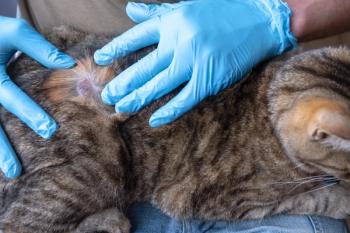
Complaint filing, free; notification, 41 cents; impact, immeasurable
National Report - A veterinarian seeking to protect his or her reputation and practice may be forced to battle an unlikely nemesis - the mailman.
NATIONAL REPORT — A veterinarian seeking to protect his or her reputation and practice may be forced to battle an unlikely nemesis — the mailman.
State veterinary boards typically notify DVMs by mail of a filed client complaint. That seemingly innocent letter can become a direct threat to the veterinarian's career.
The urge to run, hide, panic or get angry can be quelled when one knows how to handle the situation and limit negative fallout. Here are some do's and don'ts:
Do:
Investigate hiring a lawyer
"We recommend that a lawyer at least be consulted as soon as the veterinarian learns of the state complaint," says Linda Ellis, an American Veterinary Medical Association Personal Liability and Trust (PLIT) representative.
Talk to staff
"It is wise to obtain written statements from any member of the staff with firsthand knowledge of the events leading to a state-board claim," Allen says.
"It also probably is wise to explain the circumstances as the doctor remembers them to the staff members who were not involved, so that speculation and gossip are minimized," he adds.
Urge discretion, not secrecy
"I suggest staff members respectfully be asked to be discreet. If they are ordered by the boss to say nothing, that is about the fastest way to have word spread that I can think of," Allen says.
Notifying other clientele is not necessary, Ellis says.
"We are not aware of any obligation a veterinarian has to inform other clients of a state complaint," she says.
Remain calm
"If the veterinarian becomes resentful and obviously irritated, it does nothing to improve the situation," Allen says.
Complaints typically are not the end of a veterinary career.
"State-board hearings usually don't involve publicity unless the pet owner alerts the media," he says. "Media are hesitant to cover these cases because of the risk of libel claims in the event the professional is exonerated."
Implement proactive procedures
"Besides record-keeping, a primary proactive measure is good communication with the client. Return phone calls. Take the time to speak with a client regarding a concern, even if you feel the concern is without merit. Many complaints can be avoided if the veterinarian will simply take the time to speak and listen to the owner," Ellis says.
Prioritizing cost is essential, too. "Many complaints stem from billing disputes. While it often is difficult and unfair to waive a fee when the DVM has complied with all standards of care, many DVMs have told us that the financial and emotional stress of the state investigation and potential prosecution far exceeded the fee that was in the dispute.
"Most state agencies will not hold it against a DVM when a fee is waived out of good will," Ellis states.
DON'T:
Publicize the complaint unnecessarily
"If the staff is silent on the issue, the public probably won't find out about the state-board action on their own. If the doctor is asked, he probably should acknowledge that the state has made an inquiry, but that he is not supposed to discuss it," Allen says.
"The DVM's reputation can only be impugned if information regarding the complaint is disclosed to the public. Most complainants and state agencies do not publish the complaints," Ellis says.
Contact the client
The time to talk to clients is before the complaint is filed, not after. Once it goes to the state board, let your attorney make whatever contacts are deemed necessary, Ellis says.
Lack consistency in explanations
"If the veterinarian believes he or she did right, then explain how and in a detailed way.
(The veterinarian) should first assemble the facts and develop the position he or she intends to stick with permanently," Allen says.
"Nothing hurts more than switching stories, even in a minor way."
Impede an investigation
Once reviewed by the veterinary state board, some complaints will be dismissed and others investigated. Be cooperative and honest during inquiries. "I think the only thing the veterinarian can do is follow the process and be as forthcoming as possible," says Robert Newman, an animal-law attorney in Santa Ana, Calif.
Assume the complaint has merit
"We have found that the best approach is to keep a low profile and treat the complaint for what it is — an allegation, not a conclusive finding. In many states a very small percentage of complaints actually result in discipline to the veterinarian or staff," Ellis says. "A complaint can be made by anyone with access to the state agency, which is everyone in the world. This does not mean that the complaint has merit or that a violation of the practice act can be established."
Newsletter
From exam room tips to practice management insights, get trusted veterinary news delivered straight to your inbox—subscribe to dvm360.




